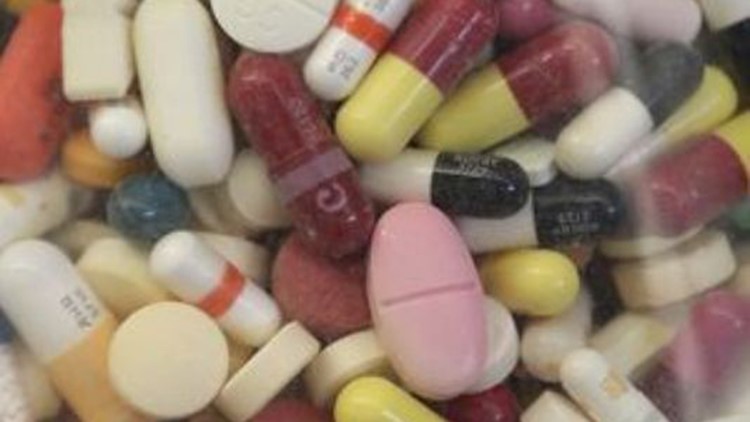Insurance giant Aetna is supporting a select number of state initiatives to help address the opioid epidemic.
Out of $6 million the Aetna Foundation has pledged in total for states hard hit by opioid abuse, $1 million is earmarked to the Florida Alcohol and Drug Abuse Association, according to the state group.
The money will be used for two projects. The first involves beefing up direct transition of overdose patients from emergency rooms to community-based treatment. The Florida Hospital Association and the Florida College of Emergency Physicians will be part of the intervention initiative.
“Emergency room visits present a critical moment for intervening in an opioid overdose,” Mark Fontaine, executive director of the Florida alcohol and drug abuse group, said. “With closely integrated resources, we can help prevent addicts from slipping back through the cracks.”
The second project will help informal networks of recovery groups gain accreditation so people in recovery have more support, from behavioral health to housing services, as they rebuild their lives.
The Florida alcohol and drug abuse association announced the funding award in late April; the North Carolina Harm Reduction Coalition announced in February that it is receiving $1 million for its rural overdose prevention program. The Aetna Foundation has yet to name other state grant recipients.
Florida hospitals treated 18,0000 opioid overdoses last year, where about 10 percent were second or third overdoses, according to the Florida Hospital Association.
“Opioid-related overdoses have touched every community in Florida and our hospital caregivers are among those serving on the front lines of this devastating epidemic,” Bruce Rueben, president of the state hospital association, said in a statement.
In Southwest Florida, the publicly operated hospital system, Lee Health, treated 955 overdoses in its four emergency rooms last year. That was a 103 percent increase from 470 overdoses in 2016.
Eleven people died last year out of the 955 overdoses, according to Lee Health data.
“The number of overdoses being treated in our emergency departments is growing exponentially,” Lisa Sgarlata, chief patient care officer for Lee Health, said.
“Our emergency rooms can play an important role in helping people get the treatment they need to overcome their addiction,” Sgarlata said. “We are thrilled to learn about Aetna’s grant and look forward to being part of the solution.”
The first step of the emergency room intervention will begin this month, which will involve getting data from hospitals and referral patterns to treatment centers.
The second phase will entail matching hospitals to community-based treatment centers “to establish warm handoff protocols and care transitions,” according to the Florida hospital association.
In Collier County, the “warm handoff” has been in existence for several years between the NCH Healthcare System and the nonprofit David Lawrence Center, the dominant community-based treatment center, said Maggie Baldwin, clinic director of Crossroads, the adult addiction treatment program at David Lawrence.
NCH nurses call an outreach specialist at David Lawrence about a patient after an overdose, and the David Lawrence representative will go to the hospital, she said.
Typically two or three people in every 28-day inpatient cycle of treatment in the 18-bed Crossroads come from NCH, she said.
“It’s a steady stream of folks,” she said. “We call that the warm handoff. We know we will have a better chance of the clients staying engaged.”
Baldwin did not have data on how often people relapse when they don’t go directly from the hospital to treatment, but the likelihood of a relapse is greater.
“It’s a risky situation for most people unless they have a great support system,” she said.
NCH admits overdose patients who need medical care, but it can be difficult to find placement for long-term treatment after they are medically cleared for discharge, Betsy Novakovich director of emergency services at NCH, said.
“The challenge is the community resources,” she said. “From the hospital side, it is not a problem.”
NCH works with several community treatment centers for addiction or mental health services, not just David Lawrence, for overdose patients after they are medically cleared for discharge, she said.
The hospital system is tracking heroin overdoses for a mapping initiative for the Collier County Sheriff’s Office; there have been 33 heroin overdoses since August 2017, she said. She did not have data readily available for other opioid overdoses.
Baldwin would like to see recovering peer specialists gaining permission to visit overdose victims while they are still in a hospital to talk about community-based addiction treatment.
“It’s someone who speaks their language and speaks the language of hope,” she said.
In May 2017, Gov. Rick Scott declared Florida’s opioid epidemic as a public health emergency; nearly 12 percent of the fatal overdoses occur in Florida. More than 5,700 opioid-related deaths occurred in Florida in 2016.
Opioid-related hospital treatment costs exceeded $1.1 billion, according to the Florida Agency for Healthcare Administration.



